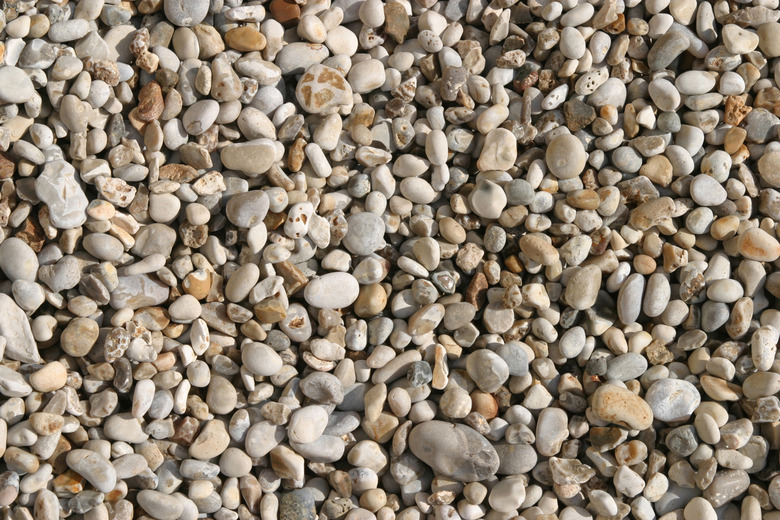Disadvantages Of Using Rock As Mulch
Rocks — in such forms as gravel, river stones and lava rock — make a decorative, long-lasting mulch that is often used for landscaping and perennial gardens.
Rocks — in such forms as gravel, river stones and lava rock — make a decorative, long-lasting mulch that is often used for landscaping and perennial gardens. In some circumstances, though, rocks are far from ideal, especially for intensively cultivated areas such as vegetable gardens, which benefit from the temperature regulation and types-tropical-rain-forests-have.html'>organic matter provided by mulches such as hay and straw.
Cost
Rocks are not necessarily expensive, but it is almost always necessary to purchase them at some price; other forms of mulch can be obtained for free or at minimal expense. Many gardeners have access to large quantities of lawn clippings or fallen leaves, both of which make excellent mulch. (Lawn clippings should be partially dried before they are applied to the soil.) Crop residues such as dried pea vines (Pisum sativum) can also be used as mulch at zero expense. If these materials are not available, farmers will often sell spoiled hay at very low prices. Such hay cannot be fed to animals, but it usually makes a fine mulch.
- Rocks — in such forms as gravel, river stones and lava rock — make a decorative, long-lasting mulch that is often used for landscaping and perennial gardens.
- Such hay cannot be fed to animals, but it usually makes a fine mulch.
Removal
Rocks can create problems when it comes time to remove your mulch. Vegetable gardens are usually mulched only for part of the growing season, and even perennials and landscaping areas need periodic renovation. Rocks are difficult to remove because of their small size and their tendency to sink into the soil. This is especially troublesome if the rocks are large enough to obstruct a hoe or other tool used for weeding or cultivating.
Nutrients
One of the primary benefits of organic mulches (such as straw, hay or lawn clippings) is that they add nutrients and organic matter to the soil as they gradually decompose. This allows you to control weeds and improve your soil at the same time. Rocks do not contribute organic matter to the soil, and any mineral nutrients in the rock are released so slowly that soil improvement is negligible.
- Rocks can create problems when it comes time to remove your mulch.
- Rocks do not contribute organic matter to the soil, and any mineral nutrients in the rock are released so slowly that soil improvement is negligible.
Temperature Effects
Organic mulch is valued for its ability to act as an insulator that helps to maintain the temperature of the soil. Rock, on the other hand, is not an insulator. Mulch is often applied in late spring after the soil has warmed up. Organic mulch helps to protect the soil from the extreme temperatures of summer; this effect is especially beneficial for cool-season crops like lettuce and peas, which prefer cooler soil. As the growing season draws to a close, organic mulch helps to retain the warmth accumulated during the summer, and this keeps plants growing later into the fall. Rock mulch will not provide these benefits.
